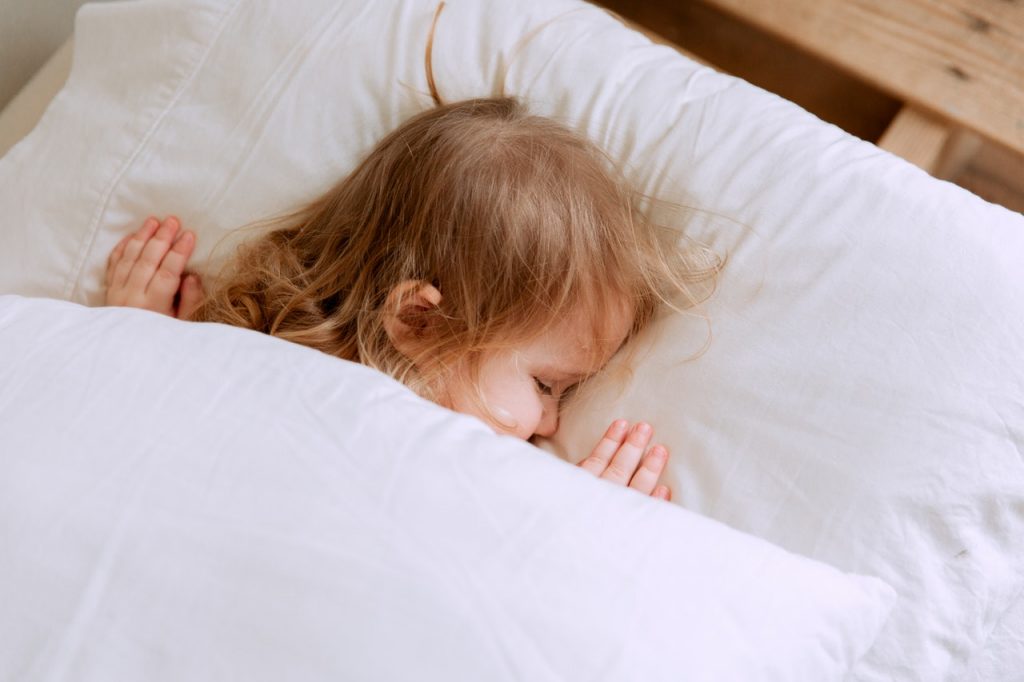
Sleep deprivation in children could lead to significant issues. Inadequate sleep is considered a risk factor for type 2 diabetes in youngsters and teenagers. Children who sleep less have worse cardiometabolic health, as measured by bigger waistlines, higher blood pressure, and lower amounts of “good” cholesterol in the blood. Adolescents who don’t get enough sleep are more likely to develop depressive symptoms. In addition, poor sleep quality and a lack of sleep are connected with learning and memory problems in both children and teenagers.
The problem is that summer sleep disruption is almost unavoidable for most youngsters. However, that does not imply that you are powerless against its consequences. On the contrary, the more aware parents are about children and sleep, the better their children’s sleep. Summertime sleep disturbances have several easy methods you can use to help your children and teenagers avoid the harmful effects of their sleep deprivation.
Consistent bedtime routine
When children do not have to go to school the next day, they keep later sleep and wake times. Adolescents’ natural later bedtimes are even more apparent as they get older, especially when they wake up early the following day. So you may want to change your children’s sleep patterns so that they can stay up later during the summer.
Still, this later bedtime should be maintained every night, and their wakeup time should also get later to ensure adequate rest.
A consistent sleep schedule might help your child regulate their sleep cycle. An hour before going to sleep, your child should begin their bedtime routine. This sequence may include putting on pajamas, brushing teeth, dimming the lights, and reading a nighttime story.
Children and teenagers may be resistant to bedtime stories, yet reading in bed or performing gentle stretches to unwind is an option. Make sure they give up using devices for this period — smartphones, tablets, and televisions emit blue light, making it difficult to fall asleep.

Healthy habits
Although summer has more unstructured time than other seasons, it is critical to keep some of the same routines since daytime behavior affects how well all ages sleep at night.
Physical activity
The more physical activity during the day, the sooner children fall asleep at night. Therefore, encourage your children to engage in physical activity or exercise regularly and consume nutritious foods.
Healthy diet
Although dietary factors require further study to obtain definitive answers, it appears that a diet rich in nutrients is likely beneficial for sleep. Therefore, encourage your children to consume nutritious foods like fruits, vegetables, and whole grains.
Sleep hygiene
Consider investing in blackout curtains to keep sunshine from waking your child up too early in the morning. Consider moving indoors, out of sunlight, in the final hour before bed as well. This will signal your child’s body that it’s time to go asleep.
Keep the bedroom cool.
You can turn on a fan or the air conditioner to help your children and teenagers get a good night’s sleep this summer. When the temperature rises, individuals have more difficulty sleeping. If you’re concerned about making the room too chilly, make sure your children have bedding that regulates their body temperature at night.
Traveling and sleep
If you have a family holiday planned or send the youngsters to summer camp, make sure that travel does not disrupt their sleep. Let your children carry their pillows and blankets if at all feasible. Sleeping pillows are made from polyester, microfiber, down, or silk.
These materials make for a pleasant experience, offer emotional support, and make flying or traveling in a vehicle more physically comfortable and accommodating to sleeping.
If you’re traveling with your children across multiple time zones, there are things you can do to help them cope with jet lag. For example, you can adjust bedtimes a few days before the trip might help them acclimate to staying up or going to bed earlier, depending on the destination time zone.
When you get there, make sure they eat meals according to the new time zone’s timetable, whether or not they’re still hungry on the old one. Finally, spend time outside during peak sunshine hours to help their circadian rhythm adjust to the new location’s routine.
Back-to-school sleep schedule
Summer vacation is a significant disruption, not just for children’s sleep during the summer but also for the following school year. To avoid this, get your kids ready for the new school year a few days before it begins. For example, if your children stay up later and sleep in later, start slowly lowering their bedtimes. This way, by the time the first day of school arrives, they will be able to fall asleep on time and enjoy it fully rested.

Conclusion
Summer vacation can be a significant disruption for children’s sleep, both during the summer and the start of the following school year. To avoid this, get your kids ready for the new school year a few days before it begins by slowly lowering their bedtimes. This way, they will fall asleep on time and enjoy the first day of school fully rested.
